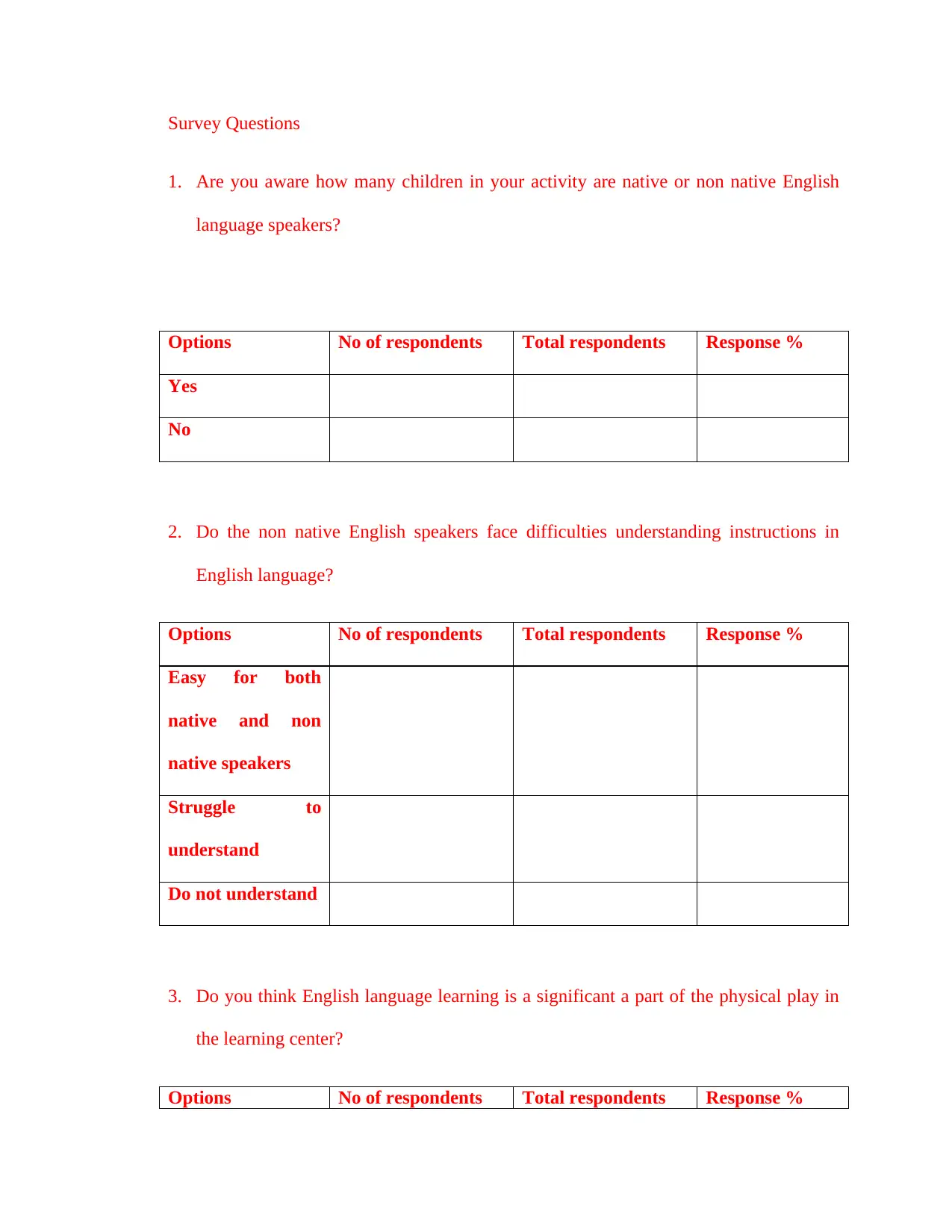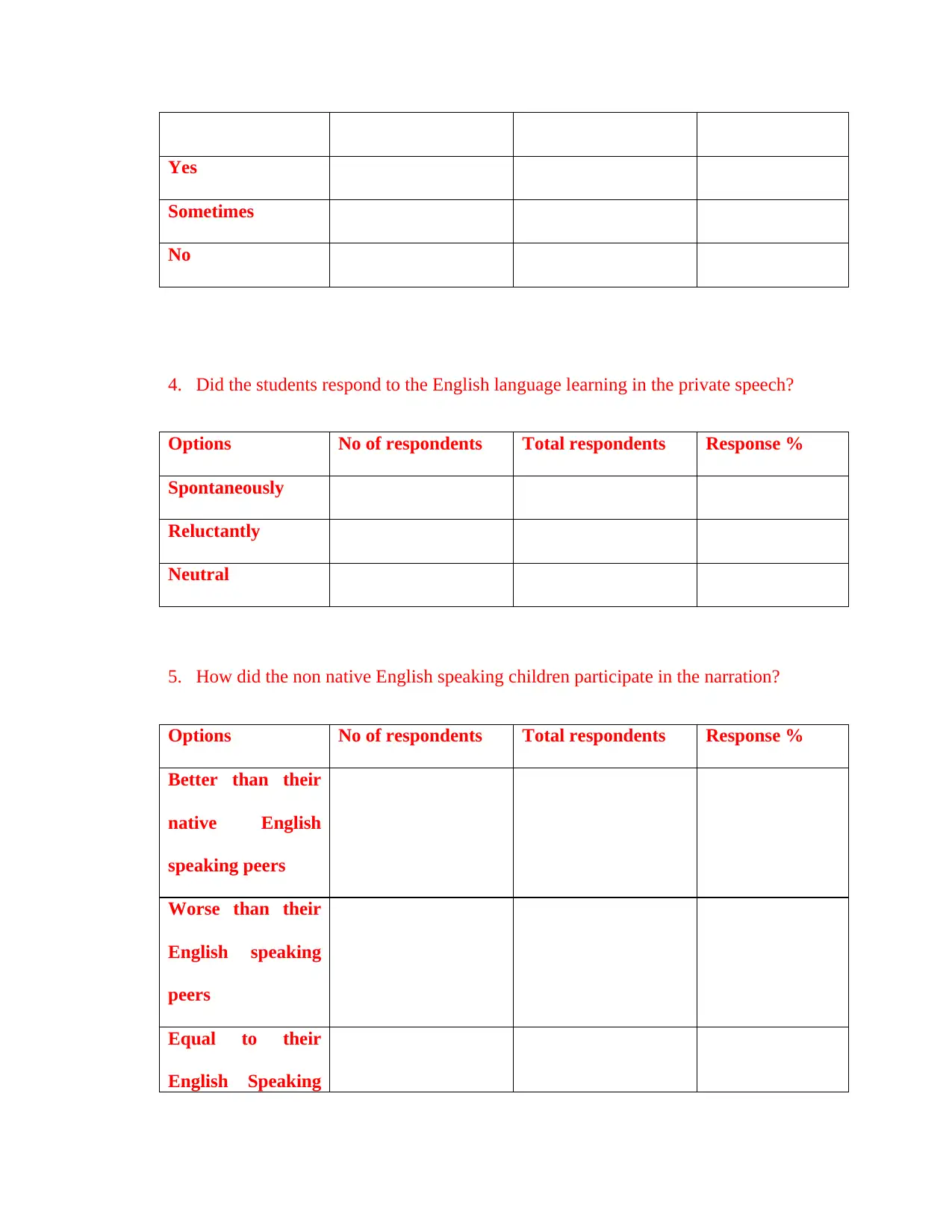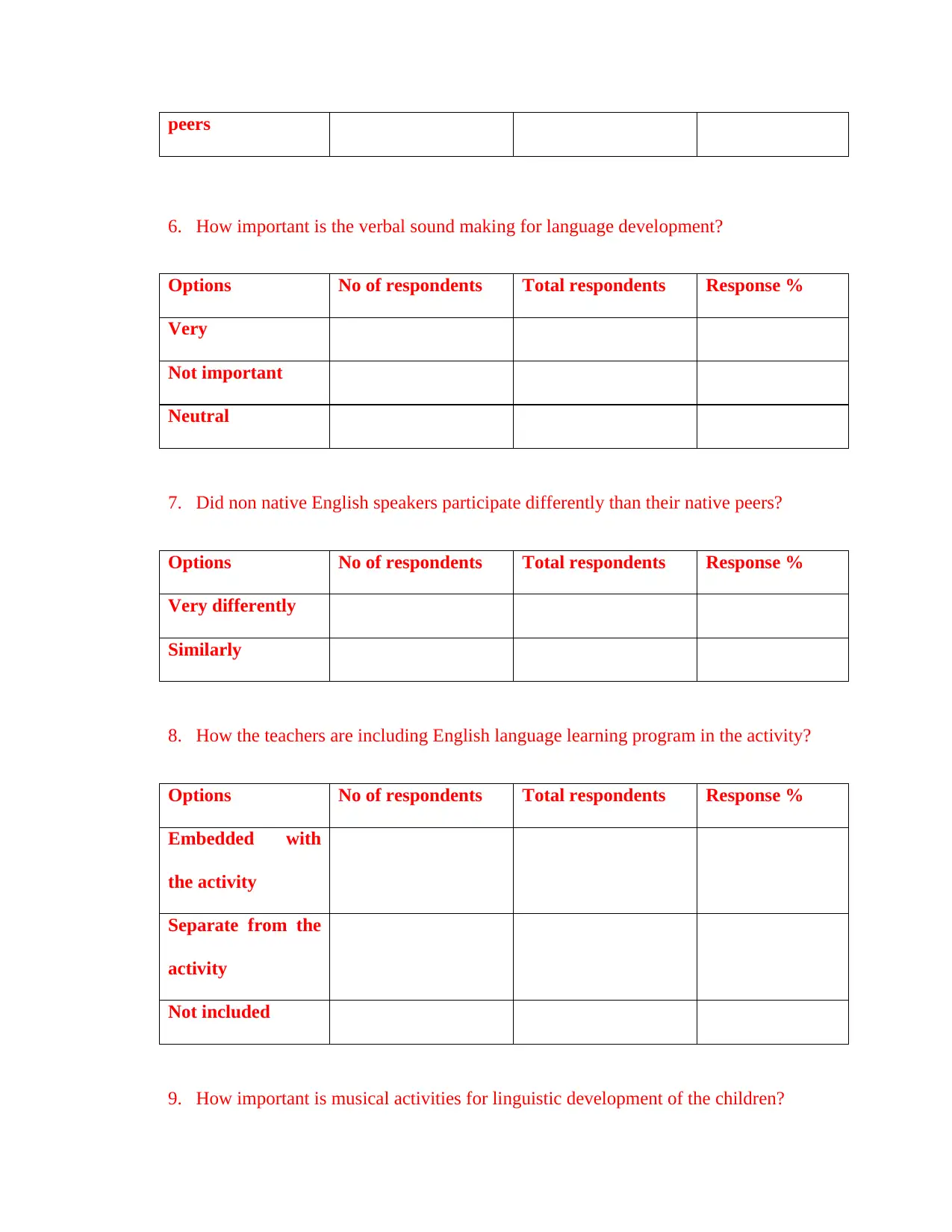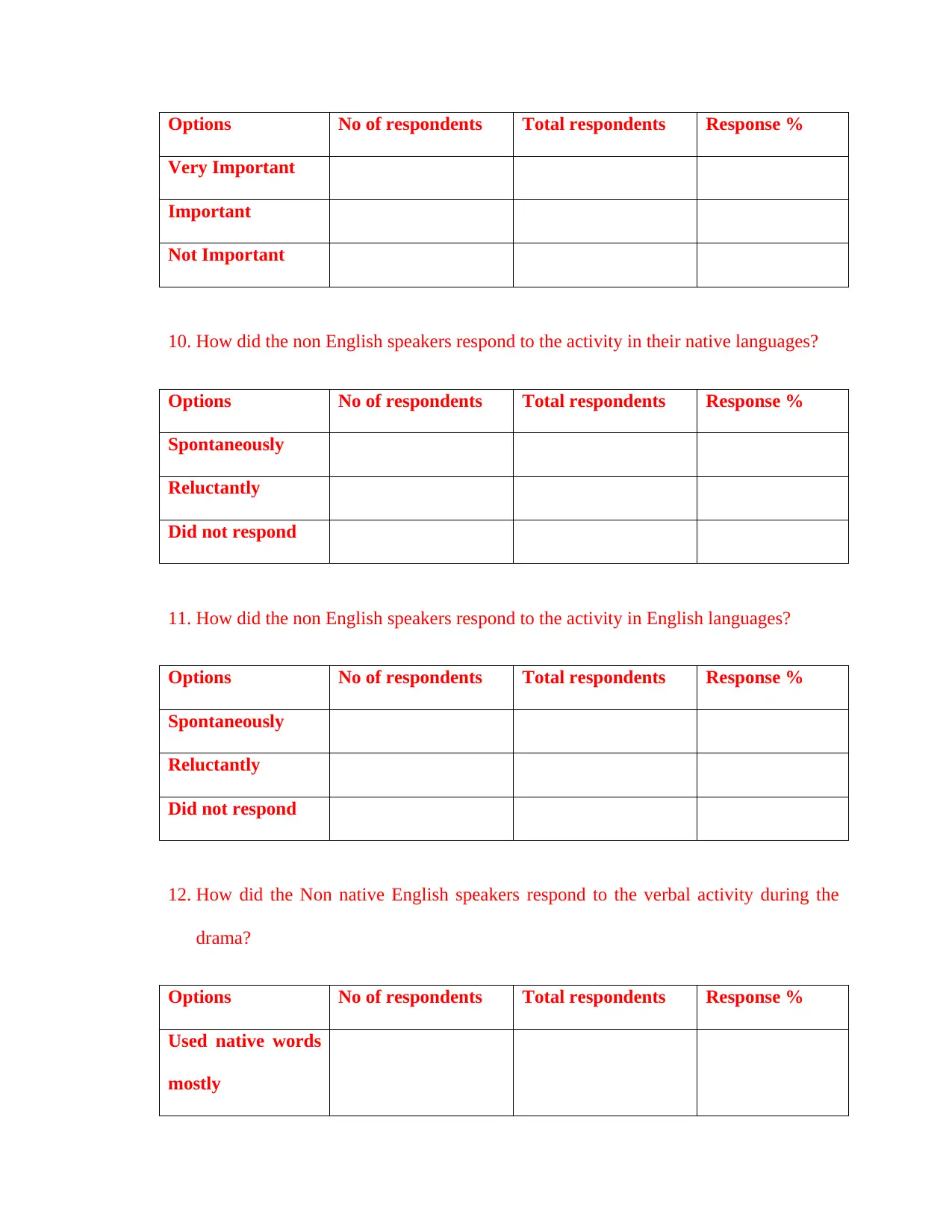English Language Learning Survey for the Non Native Speakers' Students
VerifiedAdded on 2020/04/01
|4
|394
|191
Homework Assignment
AI Summary
This assignment presents a survey designed to investigate English language learning experiences, particularly focusing on non-native speakers. The survey includes questions about the students' awareness of native and non-native speakers, difficulties faced by non-native speakers, the role of English language learning in activities, and the students' responses to the English language learning. The survey also explores how non-native speakers participate in narration, the importance of verbal sound making, and the differences in participation between native and non-native speakers. Additionally, the survey investigates the methods used by teachers to include English language learning, the importance of musical activities, and the students' responses in both their native languages and English. Finally, the survey aims to identify how language development can be improved for non-native English speaking children.
1 out of 4









![[object Object]](/_next/static/media/star-bottom.7253800d.svg)